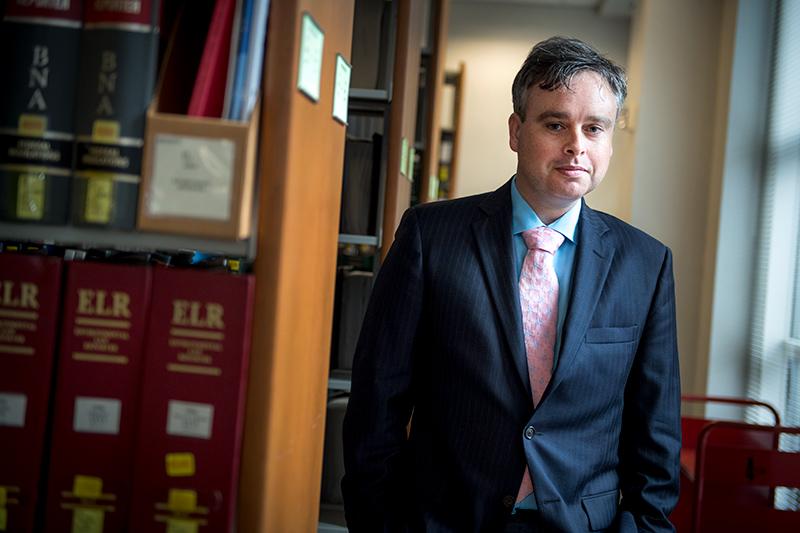Law student’s interests include research and pro bono work
Andrew Taylor, a third-year student at Tulane Law School and pro bono advocate, recently published an article in Environmental Law Reporter, a major environmental law periodical.
Taylor’s article, “Union of Concerned Scientists v. Pruitt: Can EPA Purge Its Academic Science Advisors?” analyzes Union of Concerned Scientists v. Pruitt by providing relevant background information and then examining the four specific claims put forth in the suit, according to a summary of the comments in ELR. Taylor said the article stemmed from a final paper he wrote in an environmental law class.
The publication is just one of Taylor’s pursuits outside the classroom; he also serves as a research assistant to Nadav Orian Peer, visiting assistant professor and Murphy Institute fellow, and Stacy Seicshnaydre, dean of Experiential Learning and Public Interest Programs and William K. Christovich Professor of Law. Taylor began his third year at Tulane Law School as editor-in-chief of the Tulane Environmental Law Journal.
Taylor has also been recognized for his dedication to pro bono work, having completed more than 300 hours while in law school, including with the Miranda Warning Project coordinated by the American Bar Association, and with Rising Foundations, an organization that helps ex-convicts transition back into society.
“I can’t imagine not doing pro bono work,” said Taylor. “I consider it a responsibility. It is immensely satisfying work. These people we help were born into extremely difficult circumstances and often have had to struggle. They pay in the most traumatic way, with their youth. For me it’s satisfying on a very human level.”
Before enrolling in law school, Taylor earned three master’s degrees and taught English language and writing in Asia. He has worked for a Kenya-based nongovernmental organization for more than 10 years.
Taylor said he sees helping others as part of his future.
“Pro bono work benefits you as much as those you help. It’s just part of my makeup and allows me to see the reality of law on a societal basis.”


